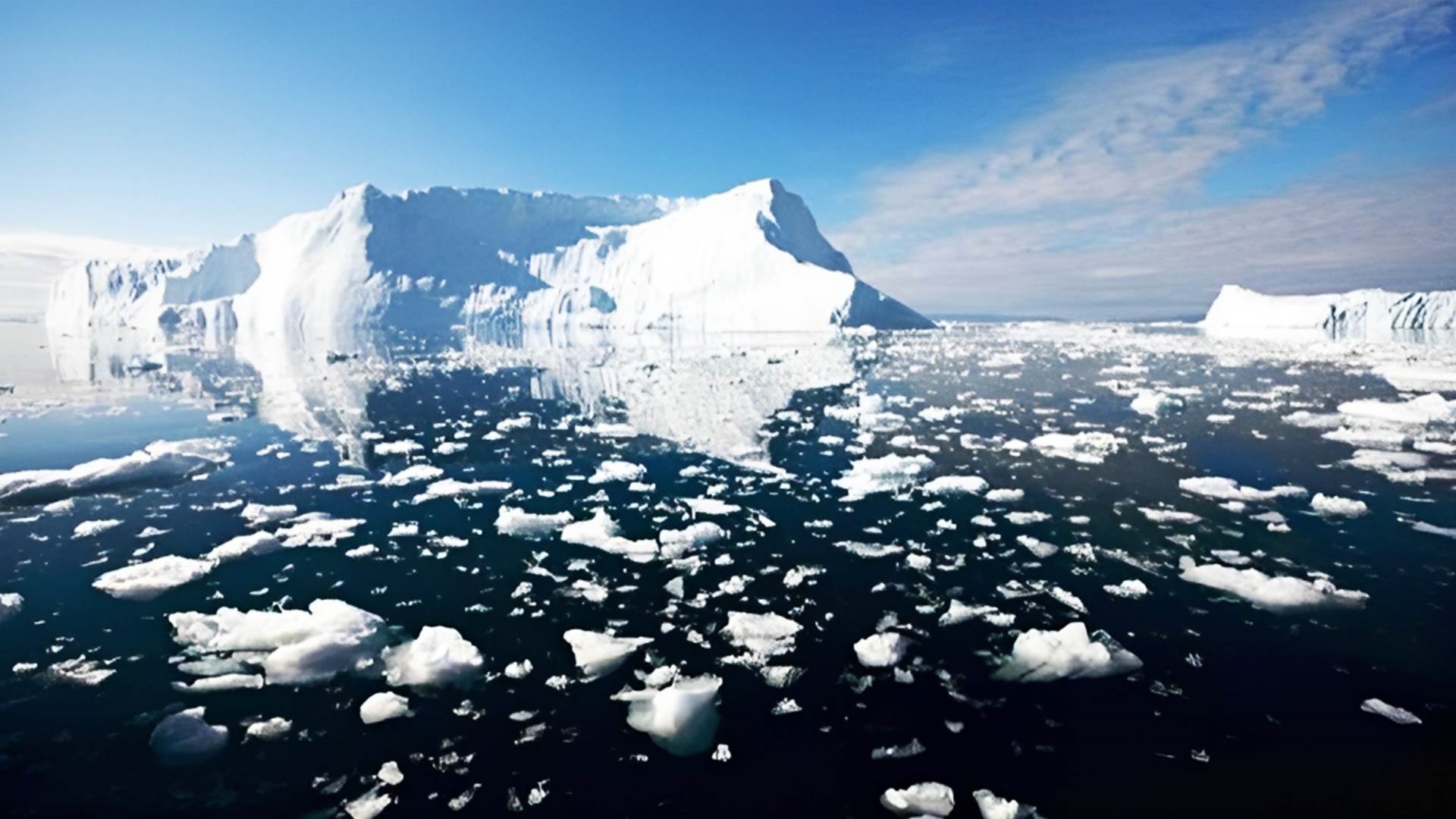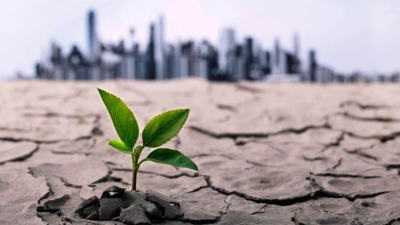Escalating Ice Melt Crisis: Impending Catastrophes, Global Climate Shifts Threaten Humanity
Wegdan Mohammed

The talk about catastrophic risks expected to occur in the event of the complete melting of our planet's ice is increasing, especially since this possibility is not distant but rather confirmed.
Our blue planet has witnessed noticeable temperature increases over the years, with the average global temperature rising by approximately two degrees Celsius since temperature recordings began in 1880 by the National Oceanic and Atmospheric Administration.
The rise in temperatures is attributed to human activity under the accelerating pace of the industrial revolution, marked by the construction of factories and various facilities relying on burning massive amounts of fossil fuels to power machines. This results in harmful emissions and chemical waste detrimental to the environment, such as carbon dioxide, nitrogen oxides, and sulfur dioxide.
The sea ice in the North and South Poles continues to break records in its decline, impacting the global climate system, increasing the risks of coastal land erosion, and intensifying conflicts among nations over waterways and natural resources.
The ice cover in Greenland, the Arctic, and the ice shelves in the Antarctic represent a total of 99% of the world's freshwater. If these ice quantities melt, sea levels could rise by tens of meters, submerging low-lying areas and reshaping coastlines on Earth.
The Sixth Assessment Report by the International Panel on Climate Change indicates a 0.2-meter rise in sea levels since 1990, with scientists estimating another meter by 2100 and possibly up to 5 meters by 2150 due to rapid deterioration in Earth's atmospheric composition.
The swift rise in sea levels threatens the lives of millions of coastal residents, leading to forced migration. Coastal cities such as New York, New Orleans, Buenos Aires, Cairo, London, Venice, Shanghai, and Bangladesh are projected to be completely submerged, affecting large areas of land severely.
This exacerbates the global freshwater crisis, as rising sea levels can contaminate inland groundwater reserves, rapidly polluting drinking water sources and affecting humans directly.
Ice melting may lead to changes that could eventually usher in another ice age, disrupting the global balance of salt and freshwater. The gravitational effects of melting ice might cause certain land areas to expand and rise, potentially mitigating the impact of rising sea levels.
Researchers also point out that ice melting will affect the length of the day, as Earth's rotation, measured by satellites and astronomical methods, shows modest yet significant changes due to the melting of glacial rivers and the flow of melted water into the oceans.
Ice melting also threatens the ocean ecosystem, as it becomes susceptible to changes in ocean and sea temperatures, prompting fish to alter their migration paths, behavior, and breeding grounds in response to warm currents.
Moreover, it forewarns severe consequences for food security, as the rising sea levels resulting from ice melting allow salty water to infiltrate surface and groundwater in low-lying areas, making the soil too salty for agriculture.













